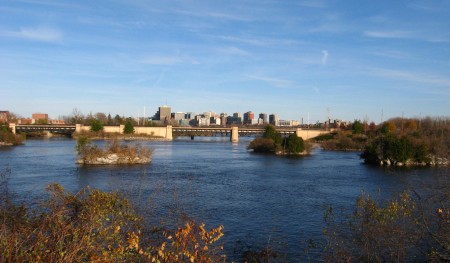Edited by Harold Coward and Andrew Weaver, Hard Choices: Climate Change in Canada is a mixed bag. The chapters vary considerably in their usefulness, as well as their contemporary relevance. Clearly, a lot has changed since the book was published in 2004. Topics covered include climatic science, projected impacts in Canada, carbon sinks, technology, economics, adaptation, legal issues, the Kyoto Protocol, and the ethics of climate change. Of those, the science section has probably held up best.
The most problematic chapters are those on technology and economics. The technology chapter criticizes renewables, boosts nuclear, and promotes the ‘hydrogen economy’ without a great deal of strong analysis or argumentation. For instance, it argues that the costs of nuclear power are almost fully internalized: a very strange position to take given the hundreds of millions of dollars worth of subsidies, loan guarantees, and liability restrictions granted to nuclear operators around the world. The chapter also singularly fails to address the many problems with hydrogen as a fuel. Finally, the assertion that crippling the world economy would be “as deadly as any climate change scenario” underscores the degree to which this volume fails in general to consider the real but unknown probability of a catastrophic outcome that threatens civilization itself.
The economics chapter basically asserts that since the Kyoto Protocol would cost money and not stop climate change in and of itself, we should simply focus on adaptation. It ignores both the fact that international action on problems like climate change (ozone, acid raid, etc) needs to be built up progressively, starting with instruments not capable of single-handedly addressing the problem. Having the international community jump instantly from no legal constraints on greenhouse gas emissions to a regime that controls all emissions in an effective way is asking far too much. The chapter also fails to take seriously the possibility of catastrophic outcomes from unchecked warming. Not all levels of change can be adapted to.
The chapter on ethics is very strange. After a brief secular portion focused on which entities are owed moral duties, it becomes a survey of world religions, arguing that each one sees selfishness as wrong. From this, it is concluded that Hinduism, Islam, Christianity, etc all yield an ethical obligation to fight climate change. A more practical and serious consideration of who owes what to who on account of climate change would have been a lot more useful. Even in terms of comparative religion, the chapter feels rather sloppy. Just because you can point to a few statements about selflessness in the doctrine of many different faiths does not mean they would all come to the same moral position on climate change. All kinds of real moral questions persist: from how much risk it is allowable to impose on future generations, to who should pay the costs of adapting to the additional warming already locked into the climatic system. The chapter fails to shed light on issues of this type.
In the end, I don’t think there is anything in Hard Choices that isn’t said in a better or more up-to-date way somewhere else. For those seeking to educate themselves on climate change, this book is not a good investment of time.

